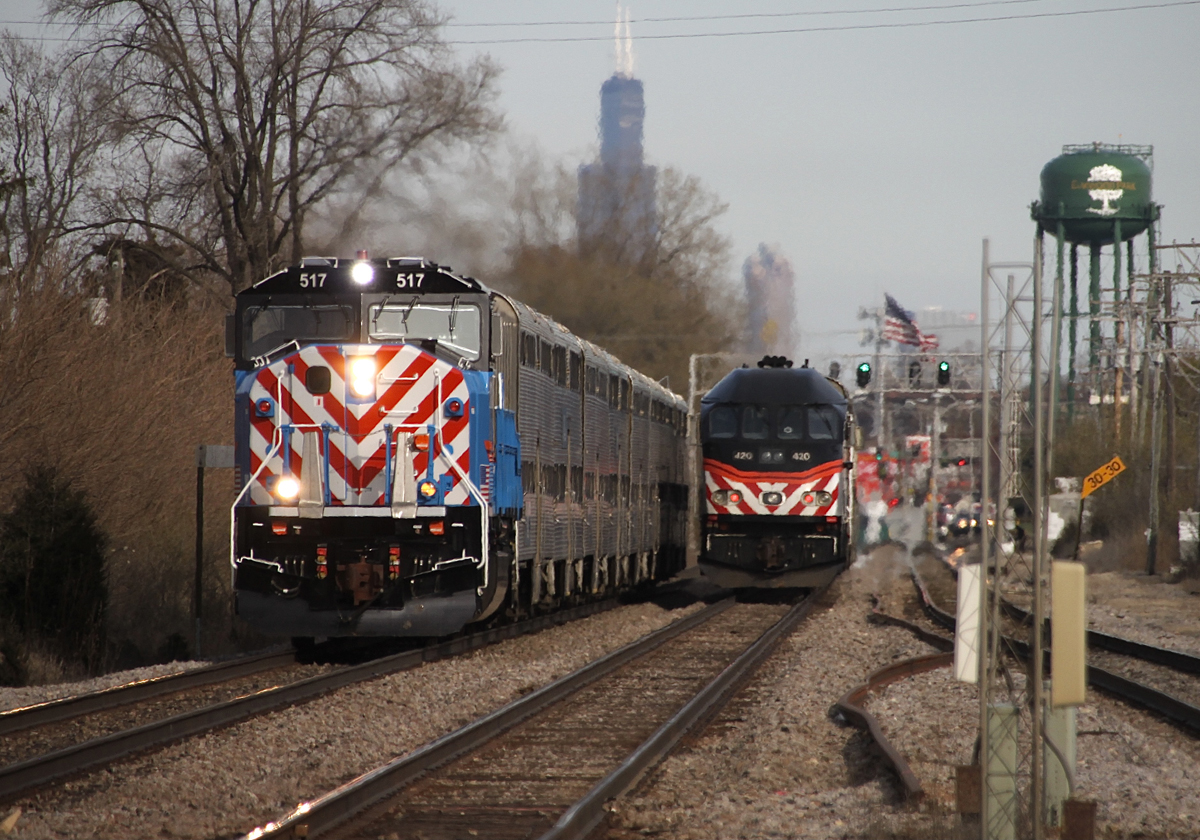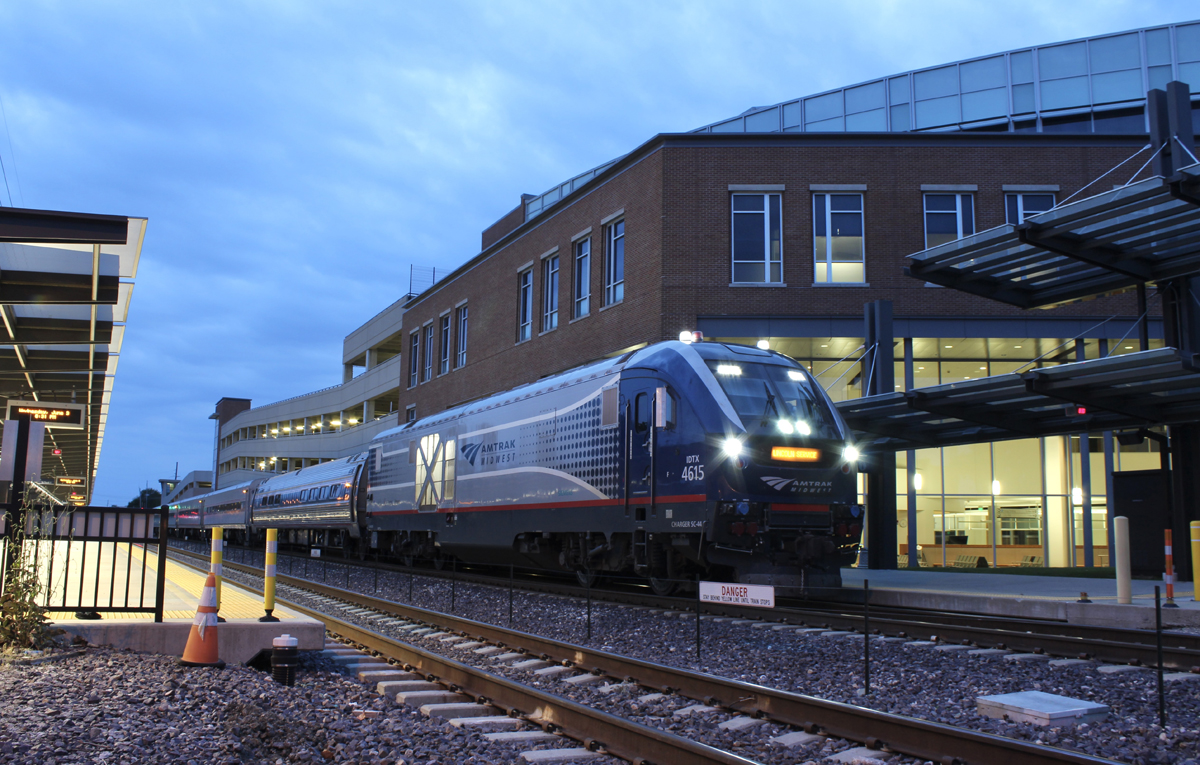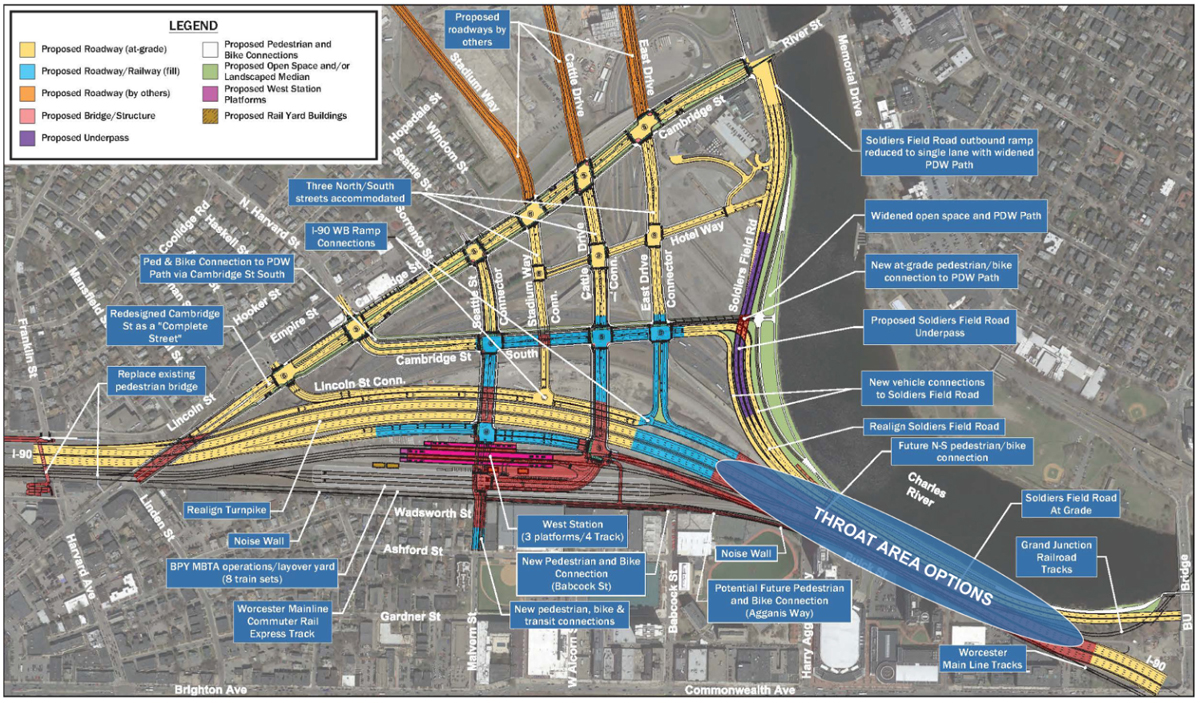
CHICAGO — Chicago-area transit agencies will begin planning for massive service cuts in the wake of the legislature’s failure to address the region’s funding shortfall — but there could still be a chance to avoid a 40% reduction in service.
Legislators could still pass a bill in a special session or a fall veto session to provide funding for the Regional Transportation Authority and its operating agencies, Metra, the Chicago Transit Authority, and Pace. But, because such legislation would come after the end of the regular session, it would require approval by 60% of lawmakers instead of a simple majority, the Chicago-Sun Times reports.
Streetsblog Chicago, in this article, breaks down the numbers that would be required to pass a bill under that standard, as well as details of funding that were included in a bill that passed the state Senate but was not voted on by the House.
Without the legislation to address the $770 million shortfall, the agencies must begin planning for the 2026 operating year based on already allocated funds. The RTA has already said that before any potential cuts can be finalized, they will have to be assessed through a lengthy process including public hearings. [See “Chicago transit agencies paint dire picture …,” Trains News Wire, March 21, 2025.] Metra told the Sun-Times cuts could come as soon as January, while the CTA could see reductions as early as March.
Illinois Gov. JB Pritzker said during a Sunday press conference that any transit bill needs to address the needs of agencies statewide, not just in the Chicago region. “I think there’s significant work that will need to be done over the summer and through the fall to make sure it gets across the line,” he said. He said he would not support any action requiring an increase in “broad-based” taxes, which he defined as personal and corporate income tax, and sales tax.














For those interested, the Sales and Use Tax reports for the Illinois RTA are posted here:
https://rtams.org/media/datasets/sales-and-use-tax-reports
The pro-transit clowns must think we are all stupid here in Illinois. What I see and hear is a request for 100% of the funding for a system where 40 percent of the riders are gone and will probably never return. Where is the conversation about shrinking the whole operation to reflect the fact that 40 percent of Metra riders NEVER came back! Fewer passengers should equal few costs as well as less revenue.
Hello Metra Board, we do not need or want to pay for a bunch of empty trains running around just to make the transit advocates look good.
Personally I’d ride Metra more often if they ran more trains since the current schedules are not always convenient for me. But since all the trains I have taken recently were still almost full even on weekends while going away from the city, the way they’re currently doing things seems to be working fine.
Hello Metra Board, please run more trains to boost ridership by letting people have more option to travel when they want.
@ Ben: Would you be willing to pay more in RTA sales tax to support your request? How much more? Double, Triple the current rate?
“In Cook County the RTA imposes a 1.25% sales tax whereas in DuPage, Kane, Lake, McHenry, and Will Counties the rate is .50%. The RTA sales tax is expected to generate approximately $1.5 billion in 2022.”
Seems the RTA’s own website is wrong……
The RTA sales tax and its distribution are authorized by Illinois statute. The sales tax rates are 1.25% in the City of Chicago and suburban Cook County and 0.75% in the five collar Counties of DuPage, Kane, Lake, McHenry, and Will.
The last increase in the sales tax rate was in 2008.
According to the RTA statistics site, total sales tax revenue in 2024 was 1.875 billion dollars.
That is what I want my taxes to go towards.
I agree with Ben in the comments here. The trains are being used. Ridership is still growing.
“He (Pritzker) said he would not support any action requiring an increase in “broad-based” taxes, which he defined as personal and corporate income tax, and sales tax.”
Because they have already raised all of them to support the ongoing deficits and borrowing. They (Illinois) never fully dealt with public service pensions which is eating up the state budget. Illinois property taxes (thanks to Michael Madigan) are already over extended, becuase they borrowed money from *future* tax income so they could spend money now.
The constitutionally mandated highway fund “lockbox” to stop them from raiding fuel taxes for general spending, has already been broken. They claimed they are just “holding it temporarily” instead of transferring it over as required. That came with a doubling of the state fuel tax.
And they voted themselves 5% pay raises.
The Big One blames the current administration in DC for the these problems, when it is well known that they started long before even Obama was in office.
Not raising broad-based taxes means hunting for nickel – and – dime taxes on the previously untaxed or lightly taxed. People look at their property tax statement each December. They aren’t supposed to notice if water and sewer fees double.
Having said that, state and local taxes should increase. The days of state and local needs being funded by federal printed money need to end.
Also needing to happen is state and local units of government going BK so as to ease pension liability. Happened in Detroit. Pensions weren’t eliminated, nor cut, but they were capped.
Illinois is one of the worst run states in the country, along with a few others that we all know and that stand-out like bloody noses. If the people of the (a) state won’t rise up and force change, then they must accept what they get and that is not a very enticing meal to be force fed… The corrupt become more corrupt and the masses get less and less. And they blame the Federal Government for not bailing them out when the real problem is in their own backyard… Oz revisited…